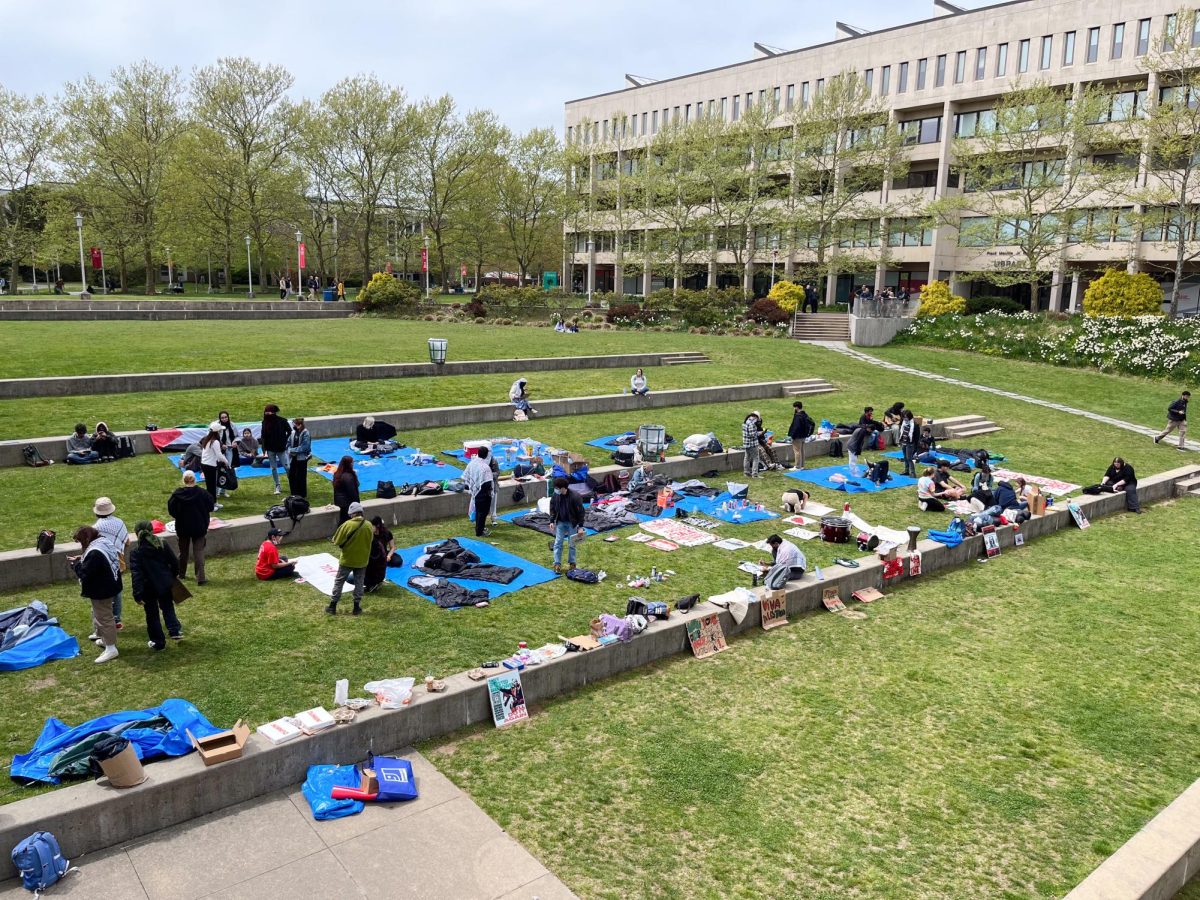
Sophomore political science and sociology major Andrew Bearkland has been forming a friendship with a refugee halfway around the world since last semester as part of a professor’s ambitious correspondence project.
Bearkland was offered a chance to connect over text message with Satimon Logwonga Elisa, a South Sudanese refugee in Uganda’s Imvepi refugee camp, after taking a course with psychology professor and program director Turhan Canli.
The inspiration for Canli’s project came when an Australian colleague put him in touch with a refugee from Nauru, a Pacific island that houses the Nauru Regional Processing Centre, an Australian immigration detention facility. The two developed a connection over time that reached deeper than Canli’s academic interests and inspired him to give his students the same opportunity.
“All these refugee issues I was interested in at a global level, at a political level, really came to life because it was very personal,” Canli said. “It stays with you, it’s not a clinical interest or even a psychological interest. It becomes a human connection.”
The professor started the correspondence project last semester to give his students and refugees the opportunity to form and develop the same kind of deep connection he had formed.
“I think for the refugees it’s really helpful to know that somebody out there knows they exist,” Canli said. “That’s a big deal, and it may very well reduce some of the stress of having an uncertain future. For the students, it’s an opportunity to learn about somebody else with an entirely different life experience.”
After a bumpy start, Bearkland and Logwonga Elisa started to develop a bond.
“The first time I spoke to Satimon it was a bit awkward, I didn’t know what to talk about with someone who has gone through so much,” Bearkland wrote in an email. “After a little back and forth, however, I figured out that he was much like me, a young guy who wants to get to know a different culture. A lot of our first conversation was getting to know you talk, but it developed into a daily dialogue.”
The 24-year-old Logwonga Elisa and his family are just a few of the more than one million refugees who have come to Uganda from South Sudan. Since splitting from Sudan in 2011, South Sudan has been racked with civil war, famine and water shortages. The conflict has forced nearly four million people from their homes, and has put a massive supply strain on the communities that take them in.
“Uganda in general has been very welcoming to refugees from other countries,” Sebastian Ssempijja, a Ugandan clinical psychologist and a colleague of Canli who is working with resettled refugees in Wisconsin, said. “Of course, the overwhelming numbers [of refugees] in Imvepi make it difficult for the locals to feel that they are able to make their own way, let alone sharing their meager resources with such a large number.”
Logwonga Elisa spends his time in Imvepi playing dice, cards and watching his friends play soccer. Bearkland said he found his friend surprisingly optimistic, despite the hardships he has endured.
“I was eager to learn, but I also went into the project thinking that Satimon would not be as upbeat as he was,” Bearkland wrote. “If anyone had the chance to talk to Satimon without knowing who he was and where he was from, you would find him to be an average guy who is eager to learn and willing to work hard for it.”
The connection he developed with Logwonga Elisa gave Bearkland new perspective and helped him put a face on the refugee crises worldwide, he said.
“Every time I hear of a group of refugees dying while trying to escape to freedom, I now think of Satimon and his struggles,” Bearkland wrote. “I also think of how strong he is and how great a student he could be if given the chance… Refugees are people too, and they deserve every chance we can give them to make a better life for themselves.”
Anybody interested in joining Canli’s correspondence project can contact him directly via email, although the professor stressed that not every applicant will get to participate.
“This is not a school project,” Canli said. “This is a potentially lifelong human bond that you’re forming with another person. So we’re very careful to make sure that people understand what they’re getting into. It’s like any other friendship, it may be lifelong, it may fizzle, but we want to make sure people understand this is not to satisfy your intellectual curiosity.”
Bearkland also emphasized that prospective participants should treat refugees the same way they would treat any new friend.
“The best way to speak to a refugee is to talk with them the same way you would anyone else,” Bearkland wrote. “They’re humans, just like us. They have problems and triumphs, and they’re eager to be friendly as well.”
A sense of normalcy and acceptance, besides helping spur conversation, can actually help refugees recover from their traumatic experiences.
“When people are on refugee status, they feel misplaced, their lives are disrupted,” Ssempijja said. “So a sense of being welcomed is part of the healing process.”








